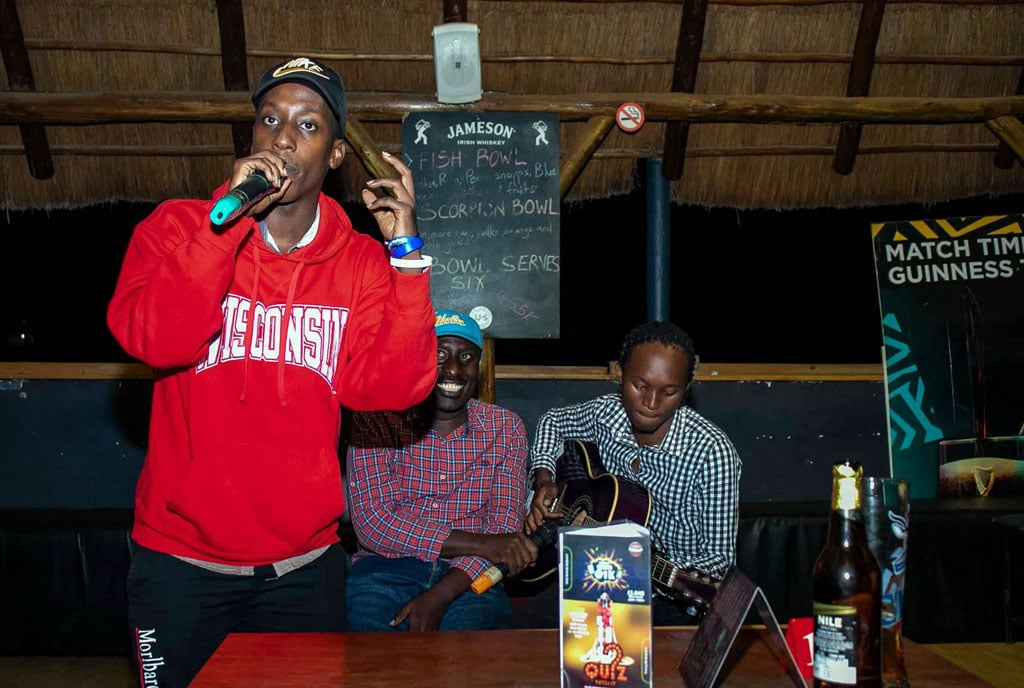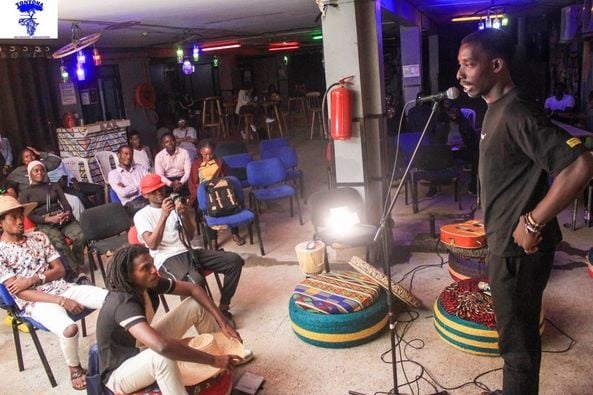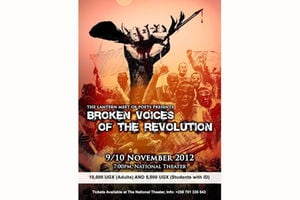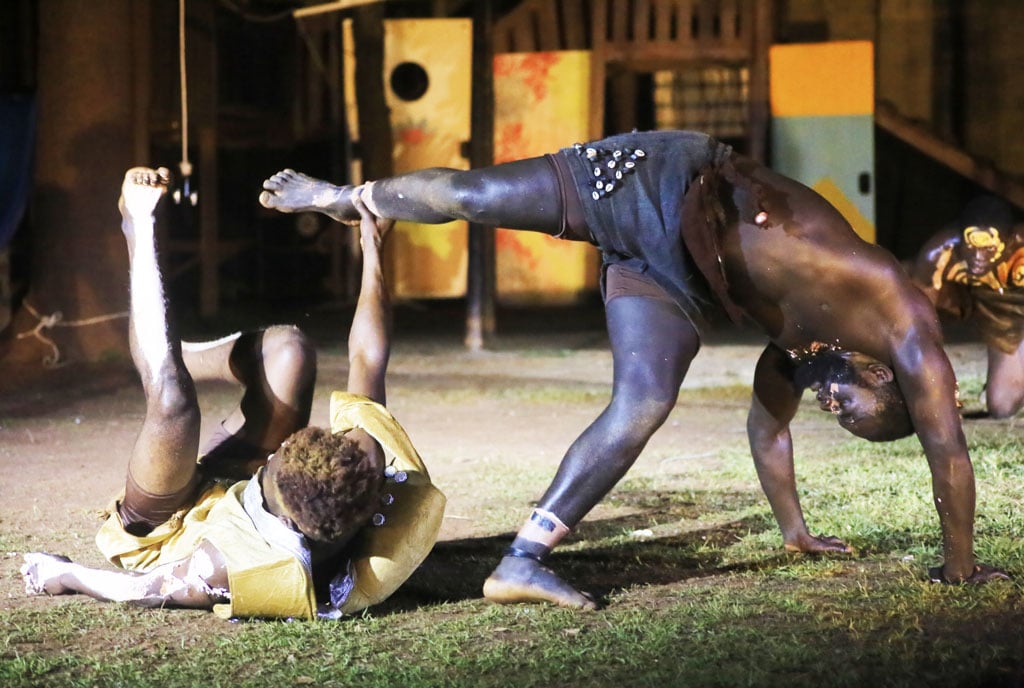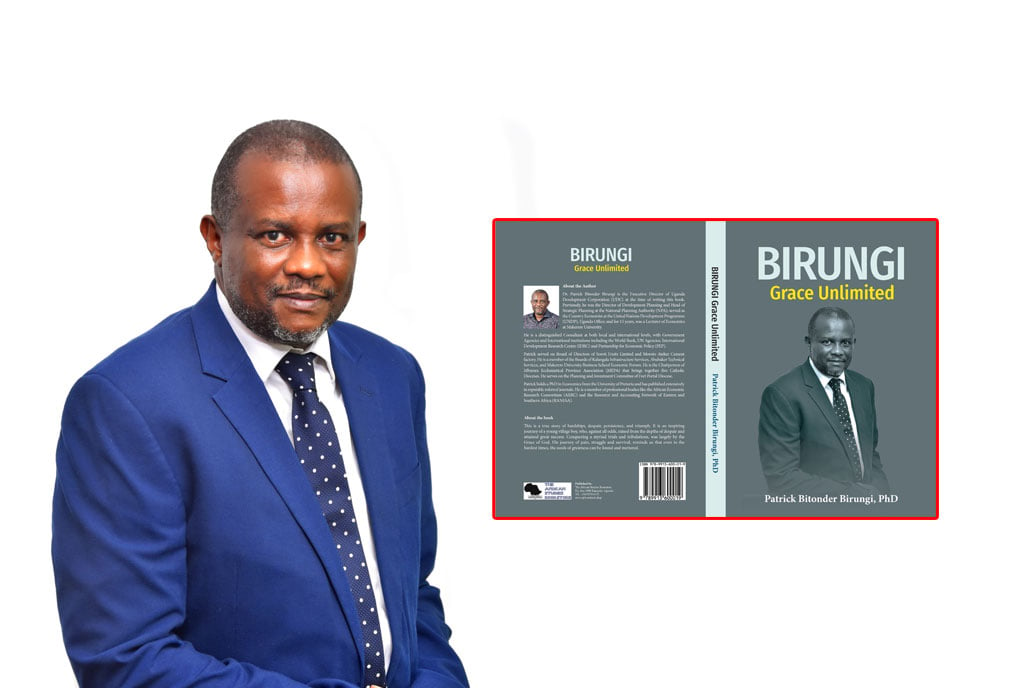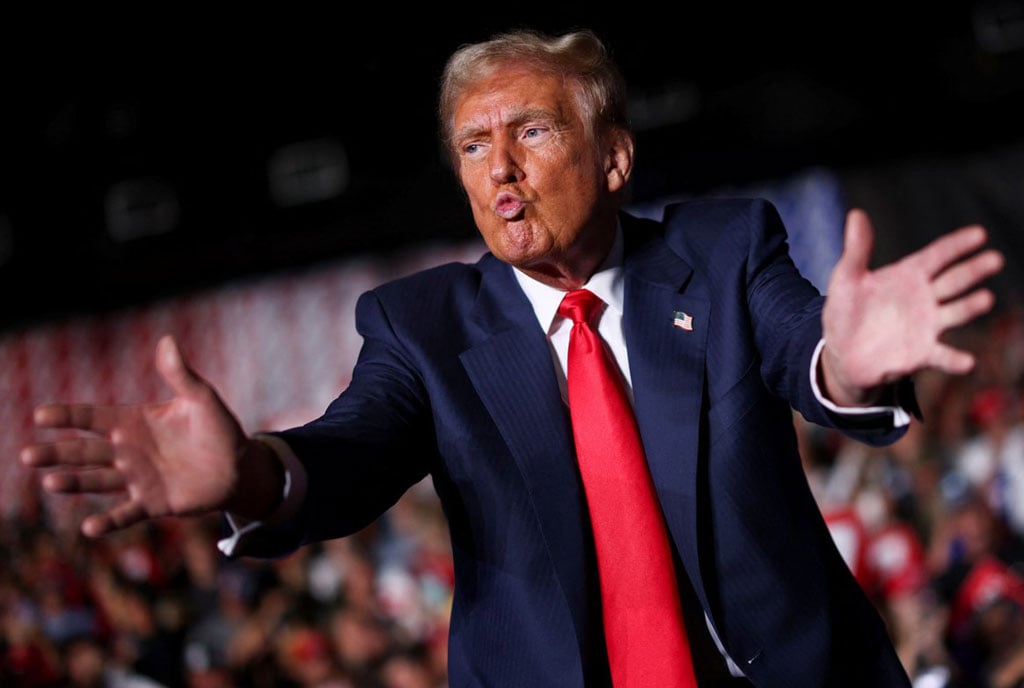
Diego The Dark Knight Poet performs at Stand-up and Slam show at Arena Bar and Restaurant in Kisementi, 2019. PHOTOPHILIP MATOGO
In the book The Pike: Gabriele d’Annunzio, Poet, Seducer and Preacher of War, author Lucy Hughes-Hallett gives us the story of D’Annunzio, the debauched artist who became a national hero in Italy. Before that, he went from being an idealist romantic to radical right-wing revolutionary who many consider to be the father of modern fascism.
Some believe D’Annunzio’s dark side developed over time, but there’s evidence suggesting he was always that way. When he was only 17, he faked his own death. Writing anonymously to newspapers, he shared the poetry of a young poet, who was himself, before saying the poet had died. This tugged the heartstrings of the readers, and his book of poetry sold out!
In Uganda, poets have used such guerrilla marketing to ensure that their poetry holds the “attention economy” by the scruff of the neck and puts it in a chokehold.
What is guerrilla marketing?
First things first, let us understand the terra incognita, as it were; that we are traversing. So as to get a fix on what works and what doesn’t, when it comes to marketing poetry. Guerrilla marketing has been described as an “advertising approach that borrows the concept of ‘guerrilla’ warfare, or the element of surprise, to communicate with target audiences. This form of marketing relies on unconventional and inventive displays to elicit wonder or shock and can be especially effective for driving publicity.”
There have been three kinds of guerrilla marketing tactics which have been employed by Ugandan poets, with mixed results.
What is the first tactic?
It is the body karate tactic. Sex sells, they say. Actually, they no longer say it because we all say it. It has become a truism. When you employ sex to sell a product or service anywhere in the world, the shock value upgrades the commodity or service value of what is being sold.
In poetry, this is no different. However, sometimes, one does not have to write about sex explicitly in order to sell poetry. Instead, they can use Winston Churchill’s implicit mention of what is sex-related: a good speech should be like a woman’s skirt; long enough to cover the subject and short enough to create interest.
In June, 2022, Carolyne “Afroetry” Acen did just this. She wrote about her privates in a poem titled “Ode to my Vagina”. It is not a pornographic poem, but it is borderline erotic in its descriptive language. Take a look:
“My vagina is a house.
Mowed on the outside.
Wide as a barn door.
Some call it a safe house
Others, a mad house.
Because it has been a home
to thirsty travellers with
Itchy feet….”
It became an instant online hit as Acen’s followers jumped from zero to hero territory. She was an overnight success, in the idiom of how Lord Bryon’s narrative poem, ‘Childe Harold’s Pilgrimage: A Romaun’, turned him into a rock star when it was published between 1812 and 1818.
It was not the first time a poet had written about her “virtue’. To the Vagina was written by Gwerful Mechain (1460-1502). In it, she not only speaks lovingly about the vulva. She also takes this occasion to verbally assault male poets for celebrating so many parts of a woman’s body but ignoring “the girl’s middle.”
“Let songs to the quim grow and thrive,” she adjures her readers, adding, “Noble bush, may God save it.”
This could be the reason why, according to Wikipedia, Mechain is “the only female medieval Welsh poet from whom a substantial body of work is known to have survived.”
What is the second tactic?
It is the art of war tactic. In the book The Art of War, Chapter 6, military strategist Sun Tzu writes: “Whoever is first in the field and awaits the coming of the enemy, will be fresh for the fight.”
Poet Dr Stella Nyanzi’s Facebook account, in 2021, was restricted following a spate of attacks on National Unity Platform (NUP) president Robert Kyagulanyi Ssentamu, alias Bobi Wine. In a steady diet of poems eaten up by the scandal-hungry online crowd, she criticised Bobi Wine with her gloves off.
“If leaders in the Opposition are untouchable, then we risk replacing the oppressive dictator with our own dictator. For me, I touch the untouchables for free!” Nyanzi said.
Nyanzi promised to release all the restricted poems in a book she had tentatively titled “NKT! The bulletproof car.”
Much like Paul Ssemogerere’s “Black Book”, however, the poems never saw the light of day. But they had stoked popular desire for Nyanzi’s poems to be read. Clearly, by being on the battlefield (Facebook) first, she won the battle to heighten interest in her poetry.
Third tactic
It is the rub their noses in it tactic. In 2018, one of Uganda’s premier poets, Kagayi Ngobi, asked the question: Who is a poet? The social media storm which followed drove traffic to his wall. As a result, his show “Arrest The Poem”, staged at National Theatre on August 11, 2018, was a literary home run, if you will. Kagayi was controversy personified, a veritable porcupine accidentally hugged.
Then, on May 12, 2023, he posted: “A proposal to have ‘mediocre verse’ as a genre of Ugandan poetry.” Here, he launched a volley of shots in support of what was decried by another poet as “a publishing fever” among poets in Uganda.
Quoting the poet, Kagayi said the reason why interest in Ugandan poetry is on the decline is that “most of the books were, for lack of an alternative term, not good enough, to sustain his interest in them to the end.”
Although referencing other people’s opinions throughout his post, Kagayi eventually nailed his colours to the mast by concluding: It is on this note, dear friends, that I table my modest proposal and move that as a group, we consider introducing a “description” of Ugandan poetry called “mediocre verse.”
This, rather predictably, touched off a storm and naturally kept Kagayi in the limelight. He had touched in their noses. With rich reward.

